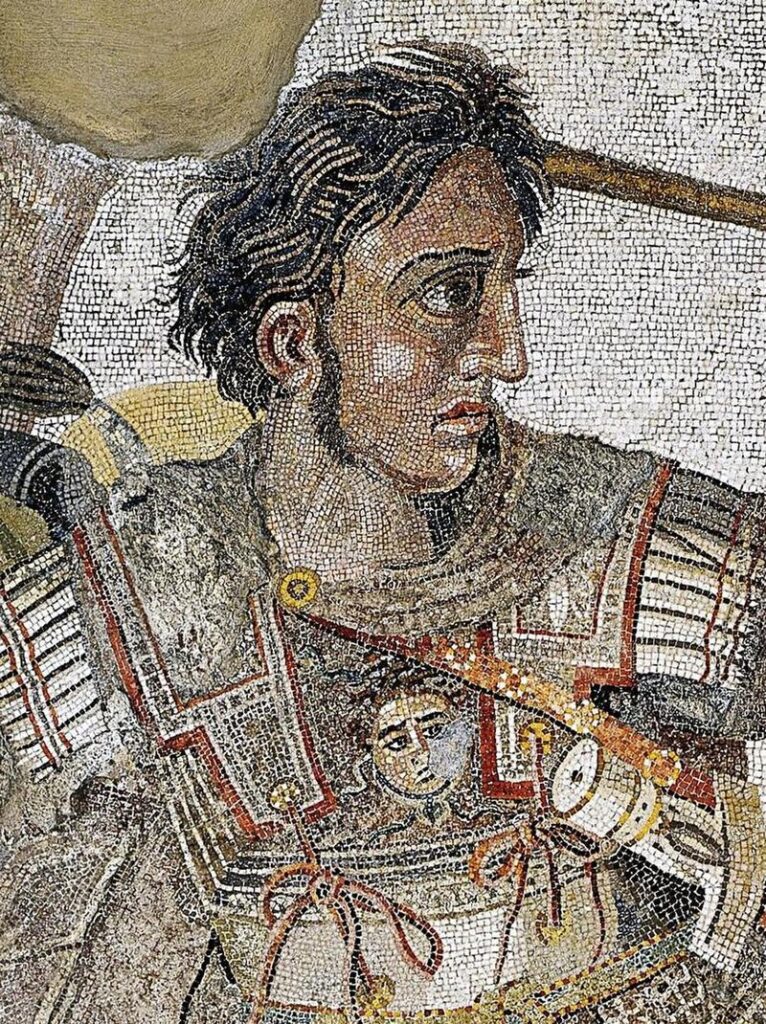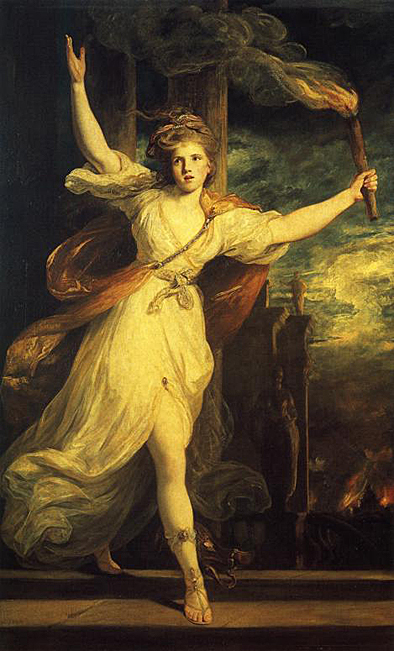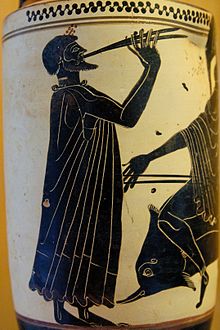Alexander’s Feast: The Story

Alexander the Great
Image courtesy of Wikipedia
It is 331BC. Alexander the Great has defeated the Persian king Darius, and is holding a feast at Persepolis to celebrate the victory. Attending the banquet alongside the warriors are the musician Timotheus and the beautiful Thaïs. Timotheus sets about manipulating Alexander’s emotions through music: he instils Alexander with pride, suggesting he is the son of Jove; he praises Bacchus, encouraging him to drink and calms him down by lamenting the sad death of Darius.
To bring Part One to a close, Timotheus praises the beauty of Thaïs, causing the lovelorn Alexander to fall asleep in her arms.

Thaïs by Joshua Reynolds
Image courtesy of Wikipedia

An Aulos Player
Image courtesy of Wikipedia
Part Two opens with Timotheus rousing the sleeping Alexander and crying for revenge against the Persians, who, when they attacked Athens, left dead Greek warriors lying on the field of battle unburied, ensuring they will have to wander the earth as ghosts. Driven into a rage by Timotheus’ poetry and music, Alexander and Thaïs are incited to burn down the Persian palace.
The work closes with a commentary on Timotheus’ talent to kindle rage or desire through his music, and a final chorus – one of Handel’s greatest – praises equally Timotheus who has ‘raised a mortal to the skies’ and the divine Cecilia who ‘drew an angel down’.
